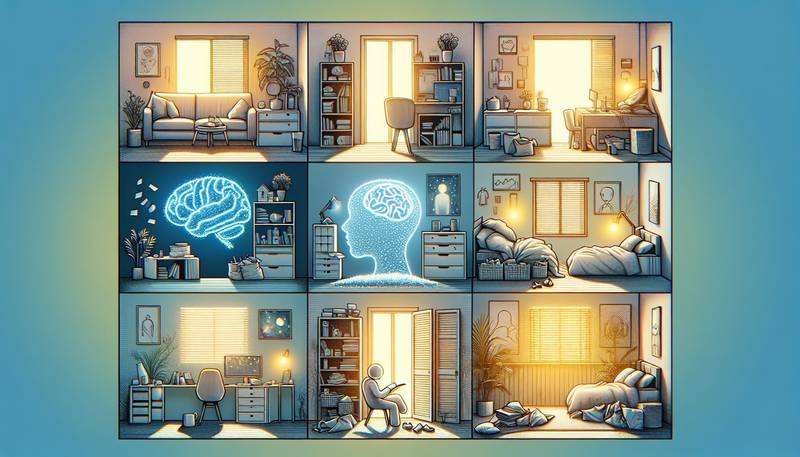The Psychology Behind Clean Spaces and How to Achieve Them
On the other hand, clean and organized spaces can have a calming effect, improve focus, and promote a sense of well-being. Understanding the psychology behind clean spaces can help us appreciate the importance of keeping our environment tidy and provide insights into how we can achieve and maintain cleanliness in our surroundings.
The Benefits of Clean Spaces
There are numerous benefits to maintaining clean and organized spaces. One of the most significant advantages is the positive impact it can have on our mental health. Studies have shown that a cluttered environment can lead to increased levels of cortisol, the stress hormone. In contrast, clean spaces can have a calming effect on our minds, reducing feelings of anxiety and promoting a sense of relaxation.
Furthermore, clean spaces can improve our focus and productivity. When our environment is clutter-free, our minds are less distracted, allowing us to concentrate better on the task at hand. This can result in increased efficiency and effectiveness in our work or daily activities. Additionally, the act of cleaning and organizing can be a form of mindfulness practice, helping us to stay present and focused in the moment.
The Psychology Behind Clean Spaces
The psychology behind clean spaces is rooted in the concept of environmental psychology, which studies how our physical environment affects our behavior and well-being. According to this field of study, our environment has a significant impact on our cognitive processes, emotions, and overall mental health.
One explanation for why clean spaces have a positive effect on our mental well-being is the principle of visual clarity. When our surroundings are cluttered and disorganized, our brains must work harder to process the visual information, leading to cognitive overload and increased stress. In contrast, clean and tidy spaces provide visual clarity, which can help promote a sense of calm and order in our minds.
Additionally, the act of cleaning and organizing can be a form of self-care and self-expression. For many people, a clean space represents a sense of control and accomplishment, which can boost self-esteem and confidence. Taking the time to declutter and tidy up can also serve as a form of stress relief, allowing us to channel our energy into a productive and gratifying activity.
How to Achieve Clean Spaces
Achieving and maintaining clean spaces requires a proactive and consistent effort. Here are some tips to help you keep your environment tidy and organized:
Start small: Begin by focusing on one area of your home or workspace. Tackling small tasks, such as clearing off a tabletop or organizing a drawer, can help you build momentum and motivation to tackle larger cleaning projects.
Declutter regularly: Take the time to declutter your space on a regular basis. Get rid of items that you no longer need or use, and find a designated place for everything to avoid clutter from building up again.
Create a cleaning routine: Establish a regular cleaning routine that fits into your schedule. Set aside time each day or week to clean and organize your space, whether it's vacuuming, dusting, or wiping down surfaces.
Stay organized: Invest in storage solutions, such as bins, baskets, and shelves, to help keep your belongings organized and easily accessible. Labeling containers and creating designated areas for specific items can also help you maintain a clutter-free environment.
Seek support: Don't be afraid to ask for help if you feel overwhelmed by the task of cleaning and organizing. Enlist the support of family members, roommates, or professional organizers to make the process more manageable and enjoyable.
By incorporating these strategies into your daily routine, you can create a clean and organized environment that promotes a sense of well-being and mental clarity. Remember that maintaining cleanliness is a continuous process, and it's okay to seek support and make adjustments as needed to ensure that your space remains tidy and welcoming.
Conclusion
Clean spaces play a crucial role in our mental well-being, affecting our stress levels, focus, and productivity. The psychology behind clean spaces highlights the importance of visual clarity, self-care, and environmental influences on our mental health. By taking proactive steps to achieve and maintain cleanliness in our environments, we can reap the benefits of a calm and organized space that promotes a sense of well-being and harmony. So, let's embrace the psychology behind clean spaces and create environments that support our mental health and overall happiness.











